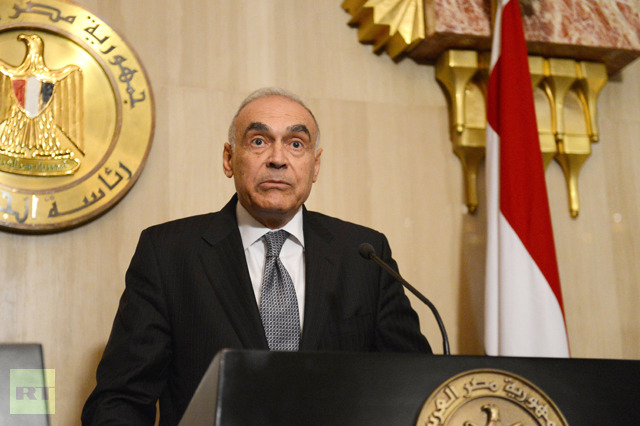JERUSALEM: Prime Minister Ehud Olmert has sacked his lead negotiator on a Gaza Strip truce for publicly criticizing the Israeli leader s handling of the talks, Olmert s office said Monday – a move that threatens to set back the already troubled contacts.
The removal of Amos Gilad comes at a critical juncture. Olmert hopes to wind up a ceasefire deal and win the release of a captured Israeli soldier before his term ends within a few weeks. His designated successor, Benjamin Netanyahu, says Israel halted its Gaza offensive too soon and must topple the territory s Hamas rulers.
Gilad, a veteran Defense Ministry official, objected to Olmert s recent demand that Palestinian Hamas free Sgt. Gilad Shalit before Israel signs a truce agreement cementing the shaky ceasefire that ended Israel s recent war on Gaza. Gilad made his opinions known in an interview last week with the Maariv newspaper.
Due to the inappropriate public criticism leveled by Mr Gilad, he cannot continue as the prime minister s envoy to any political negotiations, Olmert s office said in a statement. Aides said talks would not be affected by Gilad s firing.
Officials in Olmert s office said a longtime adviser to the prime minister, Shalom Turgeman, would replace Gilad on the truce talks. Defense officials said veteran negotiator Ofer Dekel, who brokered a recent prisoner swap deal with Lebanese militants, would handle efforts to free Shalit, snatched by Hamas-affiliated fighters during a 2006 raid into Israel. The officials spoke on condition of anonymity because of the sensitivity of the talks.
There was no immediate reaction from Gilad or Egypt.
Hamas spokesman Fawzi Barhoum said Israel never intended to reach any agreement or closure on a truce or a prisoner exchange.
Olmert, who is the focus of corruption allegations, will step down after a new government is formed. The Egyptian-mediated negotiations would likely falter if they re not wrapped up by the time Netanyahu takes power within the next few weeks.
Gilad s strategy had been to clinch a truce first, then strike a deal to swap Shalit for hundreds of Palestinian prisoners that Israel holds. But last week, Olmert abruptly announced that Israel would not reopen Gaza s long-blockaded borders – the main Israeli concession in any truce – until Shalit were freed.
Hamas is desperate to reopen the borders to start repairing the vast destruction from the Israeli onslaught and end almost two-years of crippling blockade enforced by the Israelis. But it objects to linking the prisoner exchange to the truce negotiations.
Israel said it launched its Gaza offensive to stop Palestinian rocket attacks on its south, which Palestinian group said were in retaliation of the blockade.
The sides declared separate ceasefires Jan. 18, but sporadic violence, initiated by both sides, has persisted while Egypt works to broker a long-term truce.
A rocket struck Israel on Monday morning, but no injuries or damage was reported. Earlier, the Israeli military said two armed men fired across the Gaza-Israel border fence at an Israeli patrol, which called for air support. A helicopter launched missiles at a vehicle, the military said.
Palestinian security said two missiles hit the gunmen s jeep but no injuries were reported.
Israel and Egypt sealed their borders with Gaza after Hamas seized control of the territory nearly two years ago, ousting security forces loyal to Palestinian President Mahmoud Abbas of the rival Fatah movement, who now controls only the West Bank. Israel for the most part has only allowed limited humanitarian supplies to enter since.
Last week, the United Nation s top Mideast envoy, Robert Serry, warned there is a danger of new fighting in Gaza if a ceasefire deal isn t reached quickly.
The fate of Gaza s borders is key not only to the truce deal between Israel and Hamas, but also to any future power-sharing agreement between Hamas and Fatah.
Efforts to form a unity government have failed in the past. However, after Israel s Gaza offensive, both sides have stronger motives to try to make it work.
Gaza will remain internationally isolated and Hamas will remain sidelined unless it allows Abbas a foothold in Gaza. Abbas has overstayed his term as president, which ended in January, and needs a partnership with Hamas to shore up his dwindling political legitimacy.
Previous unity efforts have failed, and a news conference at the Hamas-run Interior Ministry in Gaza on Monday did not bode well for reconciliation talks that are scheduled to begin in Egypt later this week.
Hamas officials played videotapes of what they said were Fatah loyalists confessing to relaying information about weapons warehouses, smuggling tunnels and the homes of Gaza political leaders to Abbas West Bank government.
One of the loyalists said he thought the information was later transmitted to the Israeli military and used to locate targets hit during the war. But he provided no evidence to back that claim.
